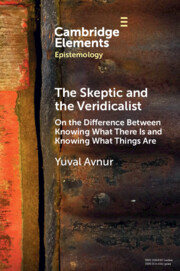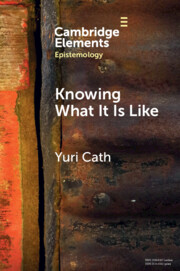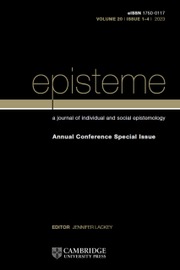The Skeptic and the Veridicalist
This Element explores the nature and formulation of skepticism about the external world by considering an important anti-skeptical strategy, 'veridicalism.' According to veridicalism, even if you are in a skeptical scenario, your beliefs about the existence of ordinary objects are still true. For example, even if you are in a global simulation, things such as tables exist as simulated objects. Therefore, your ignorance of whether you are in such a scenario does not negate your knowledge that there are tables. This strategy fails because it raises an equally troubling skepticism about what such objects are: is the table you now see a simulated object? That this is equally troubling suggests that the core skeptical problem is about what the causes of our experiences are, regardless of whether they count as ordinary objects like tables. This motivates a reconsideration of the standard formulation of the skeptical argument, and undermines some other anti-skeptical strategies as well.
Product details
January 2024Paperback
9781009243322
62 pages
230 × 150 × 5 mm
0.12kg
Available
Table of Contents
- 1. Introduction
- 2. Veridicalism
- 3. Problems for the veridicalist anti-skeptical strategy
- 4. Objections and further implications
- 5. General implications for skepticism and anti-skeptical strategies
- References.




